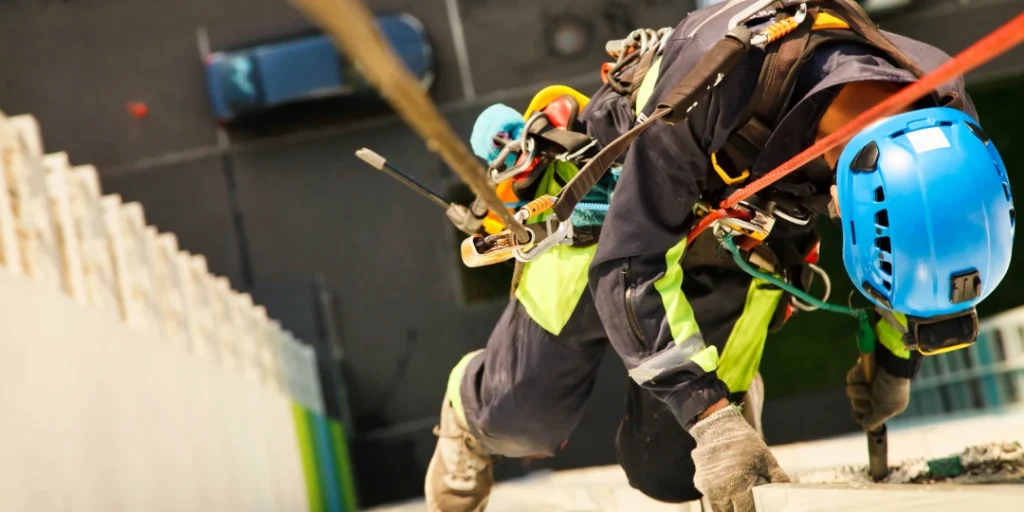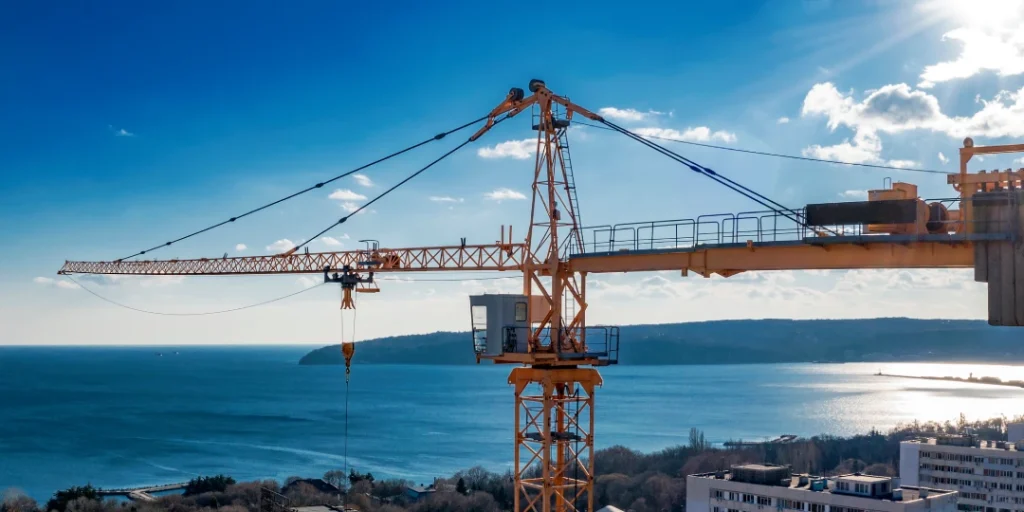Introduction: Safety at New Heights
In today’s evolving industrial and construction landscapes, aerial lifts have become indispensable tools. Whether navigating multi-story structures, servicing HVAC systems, or managing warehouse inventory at elevated levels, these machines bring efficiency and reach to the modern job site. But with their expanded capability comes an equally significant responsibility. Operating an aerial lift requires a nuanced understanding of equipment mechanics, environmental variables, and human factors. One wrong move can have far-reaching consequences—both literally and legally.
Fortier Loss Control, based in the heart of Nashville, understands this reality with exceptional clarity. Their aerial lift certification program has been carefully constructed to prioritize both operational mastery and regulatory compliance. Unlike generic or online-only programs, Fortier’s training is rooted in real-world scenarios, guided by seasoned professionals with field-tested expertise. This combination of practical insight and strict adherence to OSHA standards makes their program a benchmark in workplace safety training. It’s not just a class—it’s a calculated investment in risk mitigation.
For organizations operating in high-risk industries, aerial lift safety is non-negotiable. Accidents involving lifts often result in serious injury, costly litigation, or OSHA citations. By choosing Fortier Loss Control, employers signal a commitment to exceeding baseline standards and fostering a culture of proactive safety. It’s a decision that reflects forward-thinking leadership—one that protects employees, reduces liability, and strengthens the operational integrity of the business. In this elevated environment, safety must always come first.
Understanding Aerial Lift Certification
Aerial lift certification is more than a regulatory formality—it’s a competency framework that equips individuals with the knowledge and skills to safely perform tasks at height. Governed by standards such as OSHA 1926.453 and ANSI A92, the certification ensures that operators are proficient in equipment handling, site assessment, and emergency preparedness. This process not only reinforces workplace safety but also satisfies legal obligations that shield companies from regulatory fines and workplace incidents.
At Fortier Loss Control, certification goes beyond checking boxes. The program is intentionally designed to immerse trainees in both the technical and situational complexities of aerial lift operation. Participants explore foundational topics like load capacity calculations, stability factors, and machine-specific controls. They’re also trained to identify potential job site hazards—power lines, unstable ground, overhead obstructions—and to implement real-time mitigation strategies. This dual focus on knowledge and application empowers operators to think critically, not just mechanically.
Perhaps most importantly, aerial lift certification cultivates a mindset of accountability. When employees are trained properly, they don’t just follow protocols—they internalize them. The certification becomes a visible testament to an individual’s reliability, awareness, and respect for safety culture. Fortier Loss Control emphasizes this ethos in every session, underscoring that being certified means being entrusted with both machinery and the wellbeing of everyone on-site. It’s a responsibility earned, not assumed—and one that lasts long after the course concludes.
Why Certification Matters for Nashville’s Workforce
Nashville is experiencing a wave of rapid development—new commercial projects, residential expansions, and infrastructure upgrades are reshaping the city’s skyline. This construction boom brings with it a heightened demand for skilled labor, particularly in roles that involve elevated workspaces. From general contractors to facility maintenance teams, professionals across Middle Tennessee are relying more heavily on aerial lift equipment. In this context, certification isn’t just advantageous—it’s essential to ensure safe and legally compliant operations on-site.
Aerial lift certification provides more than just technical instruction; it establishes a professional standard for accountability and readiness. Employers in Nashville’s high-growth sectors can no longer afford to risk untrained or undertrained operators. Not only does uncertified operation violate OSHA standards, but it also increases the likelihood of workplace incidents that could halt a project or trigger costly investigations. Certification from a recognized provider like Fortier Loss Control becomes a differentiator—demonstrating that your workforce is both competent and compliant.
Additionally, certified aerial lift operators gain a competitive edge in the labor market. Whether applying for new roles, pursuing contract opportunities, or seeking promotions, having a valid certification proves a commitment to excellence and safety. Fortier Loss Control’s reputation within the Nashville business community reinforces the credibility of the credential. It’s a credential that speaks the language of industry leaders, safety managers, and regulatory inspectors—one that opens doors and builds trust on every job site.
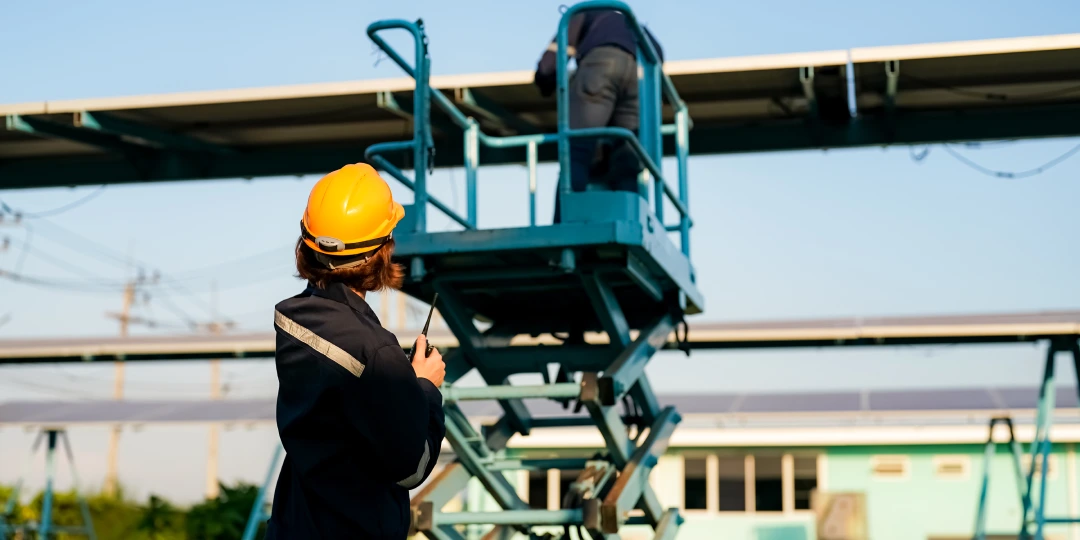
Fortier Loss Control: A Local Leader in Safety Training
In the realm of occupational safety training, Fortier Loss Control stands as a trusted authority throughout Nashville and the greater Middle Tennessee region. With decades of experience, the firm has built its reputation on the pillars of precision, professionalism, and proactive risk management. Their aerial lift certification program exemplifies these values, combining regulatory alignment with practical instruction that is relevant, actionable, and locally attuned. Fortier’s trainers are not just educators—they are industry veterans who bring firsthand insight to every session.
What distinguishes Fortier from other training providers is their deeply personalized approach. Every class is tailored to reflect the operating environments of the attendees. Whether a trainee works in construction, utilities, warehousing, or facilities maintenance, the instruction is delivered with contextual relevance. Real-world case studies, local incident data, and industry-specific examples are integrated into the curriculum to ensure that participants walk away with applicable knowledge—not just theory.
Furthermore, Fortier’s facilities and resources underscore their commitment to high-caliber training. Their Nashville training center is equipped with modern aerial lift models, simulation stations, and audiovisual tools that enhance learning retention. For companies seeking on-site certification, Fortier brings this same quality directly to the workplace, ensuring consistency across training formats. This flexible delivery model—paired with their unwavering standards—has made Fortier Loss Control the go-to partner for aerial lift training among Nashville’s top contractors, manufacturers, and property managers.
The Registration and Onboarding Process
Registering for aerial lift certification at Fortier Loss Control is designed to be efficient and client-centric. Whether you’re an individual professional looking to upskill or an employer coordinating group training, the process is clear, streamlined, and responsive. Registration can be completed online, by phone, or through direct consultation with a training coordinator. Each path is supported by experienced staff who ensure you’re scheduled appropriately and fully informed about what to expect.
Once registered, participants receive a comprehensive onboarding packet. This includes course outlines, logistical details, equipment requirements, and pre-training instructions. The goal is to eliminate uncertainty and set the stage for a focused, productive learning experience. For corporate clients, Fortier offers coordination assistance to align training schedules with project timelines and minimize disruption to operations. This level of logistical foresight reflects the professionalism that defines the Fortier experience.
Moreover, Fortier’s onboarding process includes a brief pre-assessment to understand the baseline knowledge and experience levels of each participant. This allows instructors to adapt the training session dynamically, ensuring that all attendees—from novices to seasoned operators—are equally engaged and appropriately challenged. It’s this attention to preparation and personalization that ensures every certification session starts on solid ground and delivers exceptional results.
Course Structure: What the Training Covers
The aerial lift certification course at Fortier Loss Control is methodically structured to balance technical depth with practical clarity. The curriculum is segmented into comprehensive learning modules, each designed to build upon the last. Beginning with foundational topics such as equipment classification and basic mechanics, the course then progresses into advanced areas including hazard identification, risk mitigation, and operational strategy in complex job environments. This progression ensures that trainees develop a layered and robust understanding of aerial lift operations.
One of the key strengths of the program is its dynamic delivery format. Classroom sessions incorporate visual aids, real-world case studies, and interactive discussions that transform abstract concepts into relatable, job-specific insights. Trainees are not passive recipients—they’re active participants, encouraged to ask questions, analyze scenarios, and share field experiences. This collaborative learning environment fosters a deeper grasp of critical concepts such as load limits, center of gravity, and lift trajectory.
Additionally, the course dives deeply into safety protocols mandated by OSHA and ANSI standards, reinforcing best practices that are essential for regulatory compliance. Topics such as fall protection systems, emergency lowering procedures, and pre-operational inspections are addressed in detail. Every module is anchored by real-use applications, ensuring trainees can seamlessly apply classroom knowledge in the field. The result is a certification process that doesn’t just educate—it empowers workers to operate with precision, foresight, and professional accountability.
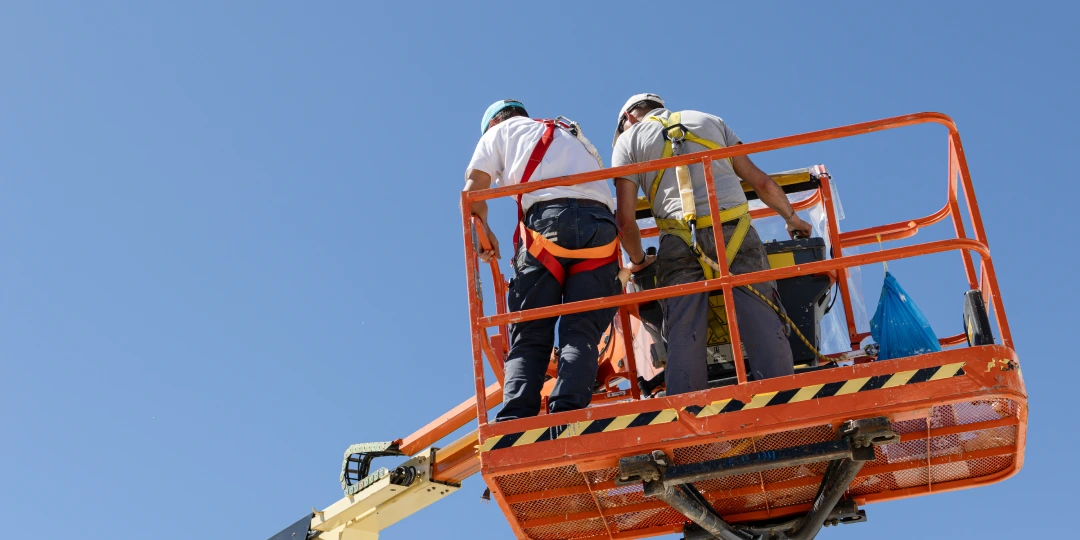
Hands-On Instruction and Equipment Familiarization
At Fortier Loss Control, theory is only half the equation. The program’s hands-on component brings the training full circle, transforming conceptual knowledge into operational competence. Participants gain direct access to modern aerial lift equipment—including scissor lifts, articulating boom lifts, and vertical personnel lifts—under the close guidance of certified instructors. This immersive, tactile learning experience is where skills are refined, instincts are sharpened, and confidence is built.
During the practical sessions, trainees perform essential tasks such as daily equipment inspections, proper mounting and dismounting procedures, lift maneuvering, and emergency response simulations. Each exercise is designed to simulate realistic job-site conditions. Whether navigating tight clearances or responding to unexpected hazards, trainees are taught to remain calm, deliberate, and safe under pressure. This scenario-based training ensures that every operator is field-ready, not just test-ready.
Moreover, Fortier’s hands-on training reinforces the nuances of machine-specific behaviors. Different lift types handle differently, respond to weight shifts uniquely, and require distinct control techniques. By working with various models, trainees gain the adaptability needed to work across multiple job sites and industries. This cross-functional competency adds real value to the certification and elevates the safety standards of any organization that employs Fortier-trained operators.
OSHA Compliance and Regulatory Insights
Regulatory adherence is not optional—it’s a foundational requirement for any company that operates aerial lift equipment. Fortier Loss Control integrates OSHA compliance deeply into its certification framework, ensuring that every participant not only understands the law but knows how to implement it consistently on the job. The training is fully aligned with OSHA standard 1926.453 for aerial lifts, as well as the applicable ANSI A92 regulations. These guidelines form the backbone of the legal and safety principles taught throughout the course.
What sets Fortier’s approach apart is the way compliance is contextualized. Rather than presenting rules as static mandates, instructors explain the rationale behind each regulation—why it exists, how it prevents accidents, and what happens when it’s ignored. Participants explore case studies of real-world violations and their consequences, from project shutdowns and costly fines to tragic injuries. This real-world framing drives home the importance of compliance as a matter of both legal obligation and ethical responsibility.
Additionally, the course includes actionable strategies for maintaining compliance long after certification. Trainees are taught how to document inspections, recognize signs of equipment failure, and communicate safety concerns effectively with supervisors and coworkers. Employers benefit by having team members who not only meet the regulatory standard but actively contribute to a safety-first culture. Fortier’s emphasis on regulatory literacy empowers both workers and organizations to stay audit-ready, accident-free, and fully aligned with evolving safety mandates.
Evaluation and Testing: Ensuring Competency
At the heart of Fortier Loss Control’s aerial lift certification program is a rigorous evaluation process designed to ensure genuine operator competency. This isn’t a rubber-stamp certification—it’s a methodical assessment that challenges each trainee to demonstrate mastery of both theoretical knowledge and practical skills. The evaluation phase includes a two-part structure: a written examination followed by a hands-on performance test. Both components must be successfully completed to earn certification.
The written exam measures the trainee’s comprehension of core concepts, including OSHA regulations, hazard identification, operational controls, and emergency procedures. Questions are structured to reflect real-world decision-making rather than rote memorization. By simulating complex scenarios and asking participants to select the safest or most effective response, the test confirms that trainees not only know the rules but can apply them in practice. This approach ensures that only those with a full understanding of safety standards proceed to the next phase.
The practical exam is equally comprehensive. Participants must perform a full pre-operational inspection, safely operate the aerial lift through a controlled course, and respond to simulated workplace challenges—all under direct observation. Instructors evaluate posture, situational awareness, control precision, and communication skills. Any deficiencies are addressed with immediate feedback and corrective guidance. Only when all safety and performance criteria are met does Fortier issue the certification. This process guarantees that certified operators are field-ready—not just in name, but in proven skill.
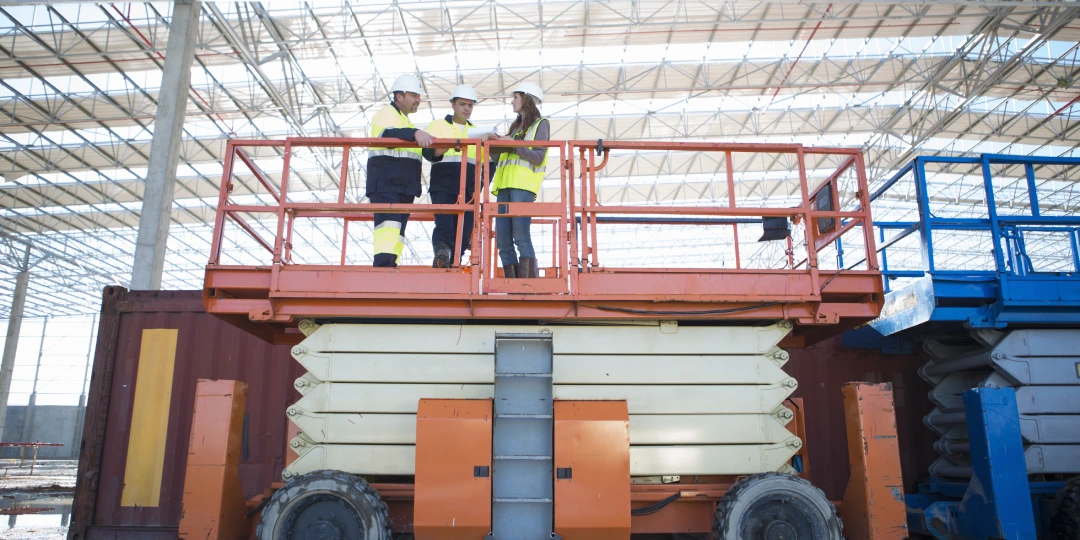
Frequently Asked Questions

Final Thoughts: Elevate Safety with Confidence
Aerial lift certification is far more than a procedural necessity—it is a strategic investment in the safety, efficiency, and professionalism of your workforce. In high-risk environments where elevation is a daily reality, every decision made at height must be informed, precise, and regulation-compliant. Fortier Loss Control provides Nashville’s employers and operators with a certification experience that transcends the minimum requirements. Through rigorous training, practical application, and ongoing support, Fortier transforms lift operation into a disciplined and safety-first practice.
What truly sets Fortier apart is the depth of its commitment—not just to compliance, but to cultivating a safety culture that resonates at every level of the organization. Their expert instructors, flexible training formats, and tailored course content ensure that each participant receives an education rooted in real-world demands and regulatory foresight. Whether you are an individual looking to advance your qualifications or a business striving for operational excellence, Fortier offers a pathway marked by clarity, confidence, and unmatched professionalism.
In a city defined by growth and innovation, safety must remain a foundational priority. Fortier Loss Control empowers Nashville’s workforce to rise—literally and figuratively—above risk, equipped with the tools, knowledge, and certification to succeed. Choosing Fortier is not simply about checking a box; it’s about elevating every aspect of your operation. From ground level to lift platform, the future of safe work starts here.


